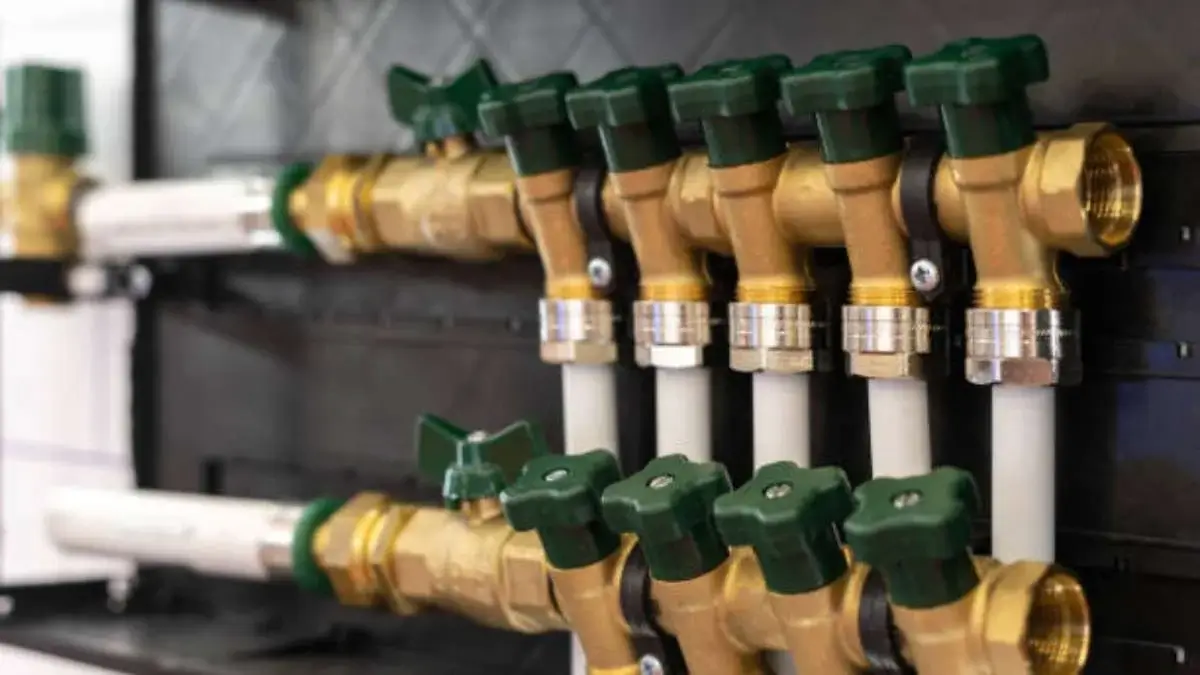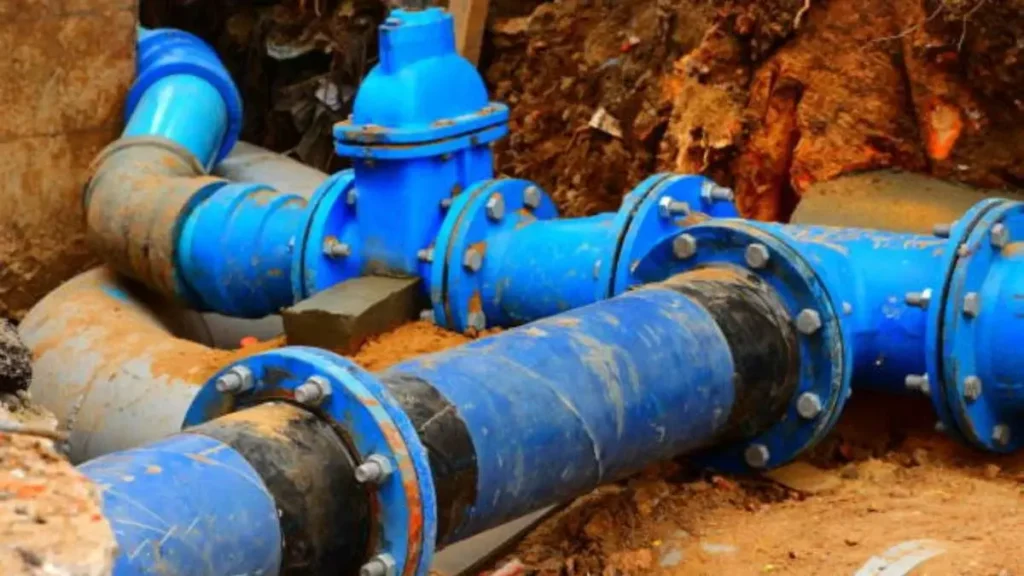HOME IMPROVEMENT
Why Gas Line Maintenance Should Be a Priority for Every Homeowner

Introduction
Gas lines are an essential component of many homes, providing fuel for heating, cooking, and other daily activities. However, the convenience of natural gas comes with responsibilities. Maintaining gas lines is crucial not only for the efficient operation of appliances but also for the safety of your home and family. Neglecting this vital aspect of home maintenance can lead to dangerous leaks, potential explosions, and even carbon monoxide poisoning.
This article explores the importance of regular gas line maintenance, the risks associated with neglect, and practical steps homeowners can take to ensure their gas lines remain in top condition.
Table of Contents
The Importance of Regular Gas Line Maintenance
Gas lines are typically out of sight and out of mind, but they require regular attention to ensure they function safely and efficiently. Over time, gas lines can degrade due to various factors, including age, environmental conditions, and general wear and tear.
- Ensuring SafetySafety is the most critical reason for regular gas line maintenance. Natural gas is highly flammable, and even a small leak can lead to catastrophic consequences if not addressed promptly. Regular inspections and maintenance help identify potential issues before they become serious hazards.
- Leak Prevention: One of the primary goals of gas line maintenance is to prevent leaks. Gas leaks can occur due to corroded pipes, loose connections, or accidental damage during home renovations. Detecting and repairing these issues early is essential for preventing accidents.
- Avoiding Explosions: In the presence of a gas leak, a single spark from a light switch or electrical appliance can ignite the gas, leading to an explosion. Regular maintenance reduces the likelihood of leaks, significantly lowering the risk of such incidents.
- Ensuring EfficiencyWell-maintained gas lines contribute to the efficient operation of your gas-powered appliances. When gas lines are in good condition, they deliver gas to your appliances at the correct pressure, ensuring they operate efficiently and safely.
- Optimal Performance: Appliances connected to properly maintained gas lines are more likely to perform at their best. This means your water heater, furnace, stove, and other gas-powered devices will work efficiently, reducing energy consumption and prolonging their lifespan.
- Preventing Carbon Monoxide Buildup: Faulty gas lines can lead to incomplete combustion in appliances, which in turn can produce carbon monoxide—a colorless, odorless gas that is extremely dangerous. Regular maintenance helps ensure that gas appliances burn fuel properly, preventing carbon monoxide buildup.
- Compliance with RegulationsMany local building codes and regulations require regular gas line inspections, particularly in older homes or when modifications are made to the gas system. Compliance with these regulations is not only a legal requirement but also a critical step in ensuring the safety of your home.
- Meeting Safety Standards: Gas line maintenance ensures that your system meets all current safety standards, reducing the risk of fines or legal issues. Additionally, maintaining compliance with local regulations can also protect you from liability in the event of an accident.
Risks of Neglecting Gas Line Maintenance
Neglecting gas line maintenance can lead to a range of problems, from minor inconveniences to life-threatening hazards. Understanding these risks underscores the importance of regular care.
- Gas LeaksGas leaks are the most common and dangerous consequence of neglected gas line maintenance. A leak can occur anywhere along the gas line, from the main supply line to the connections at your appliances. The longer a leak goes undetected, the greater the risk of an explosion or fire.
- Signs of a Leak: Common signs of a gas leak include the smell of rotten eggs (a scent added to natural gas for detection), hissing sounds near gas lines, and dead vegetation near the gas line outside your home. If you notice any of these signs, it’s crucial to evacuate your home immediately and contact a professional plumber or gas company.
- Carbon Monoxide PoisoningAs mentioned earlier, faulty gas lines can lead to incomplete combustion in your appliances, resulting in carbon monoxide production. This gas is highly dangerous because it is invisible and odorless, making it difficult to detect without proper equipment.
- Health Risks: Symptoms of carbon monoxide poisoning include headaches, dizziness, nausea, confusion, and even loss of consciousness. Long-term exposure can be fatal. Ensuring your gas lines and appliances are in good working order is key to preventing this silent killer from affecting your household.
- Increased Energy CostsPoorly maintained gas lines can cause your appliances to work harder than necessary, leading to increased energy consumption and higher utility bills. For example, a water heater with a compromised gas supply may take longer to heat water, using more gas in the process.
- Cost Implications: Over time, the extra energy consumed by inefficient appliances can add up, leading to significantly higher gas bills. Regular maintenance ensures that your gas lines deliver fuel efficiently, keeping your energy costs under control.
- Structural DamageGas leaks can also cause structural damage to your home. Over time, gas escaping from a leak can erode the materials around it, including wood, metal, and concrete. In severe cases, this can compromise the structural integrity of your home.
- Damage to Foundations and Walls: Leaks near the foundation or walls can weaken these structures, leading to cracks or other forms of damage. This not only affects the safety of your home but can also lead to expensive repairs.

Practical Steps for Gas Line Maintenance
Regular gas line maintenance involves a combination of routine checks, professional inspections, and prompt action when issues are detected. Here are some practical steps homeowners can take to maintain their gas lines.
- Regular InspectionsConducting regular inspections of your gas lines and appliances can help you identify potential problems early. While homeowners can perform basic visual checks, a professional inspection should be conducted at least once a year.
- Visual Checks: Look for signs of wear and tear on exposed gas lines, such as rust, corrosion, or loose connections. Also, check for any unusual smells or sounds that could indicate a leak.
- Professional Inspections: Hire a licensed plumber or gas technician to perform a thorough inspection of your gas lines and appliances. They have the tools and expertise to detect issues that may not be visible to the untrained eye.
- Install Gas DetectorsInstalling gas detectors in your home is an effective way to monitor for leaks. These devices can detect natural gas or carbon monoxide and alert you with an alarm if dangerous levels are present.
- Placement: Install gas detectors near gas-powered appliances, in basements, and near sleeping areas to ensure you receive early warnings of any leaks. Regularly test the detectors to ensure they are functioning properly.
- Schedule Regular Maintenance for Gas AppliancesGas-powered appliances like water heaters, furnaces, and stoves should be serviced regularly to ensure they are operating safely and efficiently. This includes checking for proper ventilation, ensuring that burners are clean, and verifying that all connections are secure.
- Annual Servicing: Schedule an annual service appointment with a qualified technician for each gas-powered appliance. This maintenance can help prevent issues related to incomplete combustion and ensure that your appliances are running efficiently.
- Be Cautious During Home RenovationsHome renovations can sometimes lead to accidental damage to gas lines, especially if you’re drilling into walls or floors. Always check for the location of gas lines before starting any renovation projects.
- Hiring Professionals: If your renovation involves moving or installing gas lines, always hire a licensed professional. They can ensure that the work is done safely and according to code, minimizing the risk of leaks or other issues.
Conclusion
Gas line maintenance is a critical aspect of homeownership that should never be overlooked. By ensuring that your gas lines are regularly inspected, properly maintained, and promptly repaired, you can protect your home from the dangers of gas leaks, explosions, and carbon monoxide poisoning. Taking a proactive approach to gas line maintenance not only ensures the safety of your household but also contributes to the efficient operation of your gas-powered appliances, saving you money in the long run.
For homeowners who want peace of mind, partnering with a trusted plumbing service like Ares Plumbing can make all the difference. Regular professional inspections and maintenance services will help ensure that your gas lines remain in top condition, keeping your home safe and your appliances running smoothly.
-

 GENERAL6 months ago
GENERAL6 months agoChristofle – For Those Who Dream of Family Heirloom Silver
-

 SPORTS8 months ago
SPORTS8 months agoDiscover the World of Football with Streameast: Watch Your Favorite Leagues and Tournaments
-

 GENERAL4 months ago
GENERAL4 months agoUncovering the World of кинокрадко: The Dark Side of Film Piracy
-

 GENERAL2 months ago
GENERAL2 months agoATFBooru: Anime, Gaming, and Subculture Imageboard





























